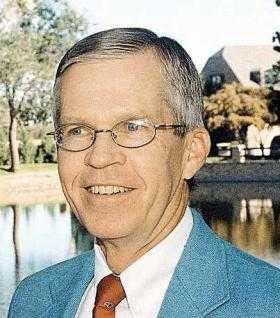Bob Hatton gardening column for Nov. 21: Environmental responsibility
As I went on my morning exercise walk on Tuesday, I was reminded of Texas black gold. Having grown up in the oil patch, with the lifestyles that we lead, and with the move toward being “green”, petroleum and petroleum-based items are never far from consciousness. The items that brought it to my attention this time were the trash cans in the street with plastic bags full of leaves and other lawn and garden debris waiting for the city to pick up. Homeowners, like me, who raked, mowed, and otherwise collected debris over the weekend from lawns and gardens were disposing of it on the Tuesday trash pickup day in our area.

Unfortunately, we have only limited curb side pick-up of recyclables in Amarillo so in addition to leaves and grass, we have a lot more trash going to the landfill than we would with a recycling program. However, while there are places throughout the city where one can take recyclables, we can recycle our leaves and grass clippings at home where they are otherwise set out for pickup by the city. These can also be turned into black gold, only this black gold will fuel plant growth, not internal combustion engines.
The simple act of composting not only saves landfill space and reduces the cost of trash collection and disposal, but it saves us money by supplying valuable nutrients to ones’ garden rather than purchasing chemical, petroleum-based products or commercially made compost.
And, even if one does not build a compost pile, the leaves and grass can be added directly to flower or garden beds where they will provide a water saving, weed germination preventing mulch while decomposing. For this use as well as for putting in a compost pile, decomposition will be quicker if the compostable materials are chopped into smaller pieces using a mower or shredder.
Composting is easy and need not be a complicated project. After all, organic materials decompose on their own in nature without any human intervention. One can simply build an open compost pile or contain the material in a purchased or home built containment apparatus. My three piles are each contained on three sides by chicken wire attached to metal fence posts. The open front allows easy access for turning and use of the compost.
Perfectionists can study composting and adhere to the proper percentages and types of materials to mix. People like me simply pile up what they have, mixing brown and green materials if they are both available, wet it down, and wait. This will take longer than using the scientific methods that will optimize the speed of decomposition, but it will happen.
The simple way can be speeded up by periodically turning the pile, thus mixing the materials, introducing oxygen into the mix, and by keeping the pile evenly moist. The choice is yours, but regardless, the materials will ultimately decompose into usable
garden compost.
Environmental responsibility should and can become second nature to us all for the future good of everyone.
This article originally appeared on Amarillo Globe-News: Hatton gardening column: Environmental responsibility
